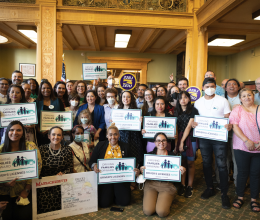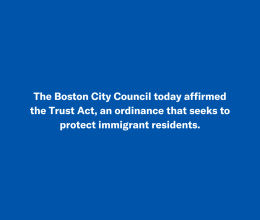
Regardless of your immigration status, you have guaranteed rights under the Constitution. Learn more here about your rights as an immigrant, and how to express them.


Regardless of your immigration status, you have guaranteed rights under the Constitution. Learn more here about your rights as an immigrant, and how to express them.
No matter your immigration status, you have rights when you interact with immigration agents or the police. Print and share these cards in your community.
Know Your Rights poster: Stopped by Police, Immigration Agents, or FBI
Know Your Rights palm cards: Interacting with Police or Immigration Agents
We Have Rights | National ACLU







